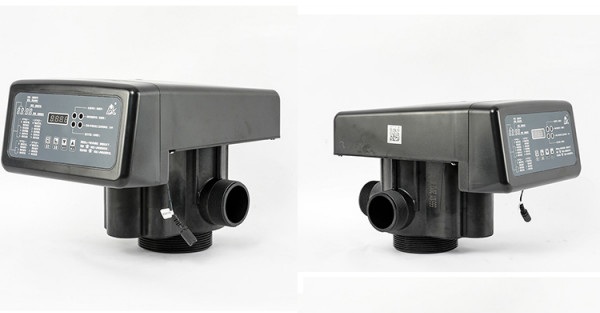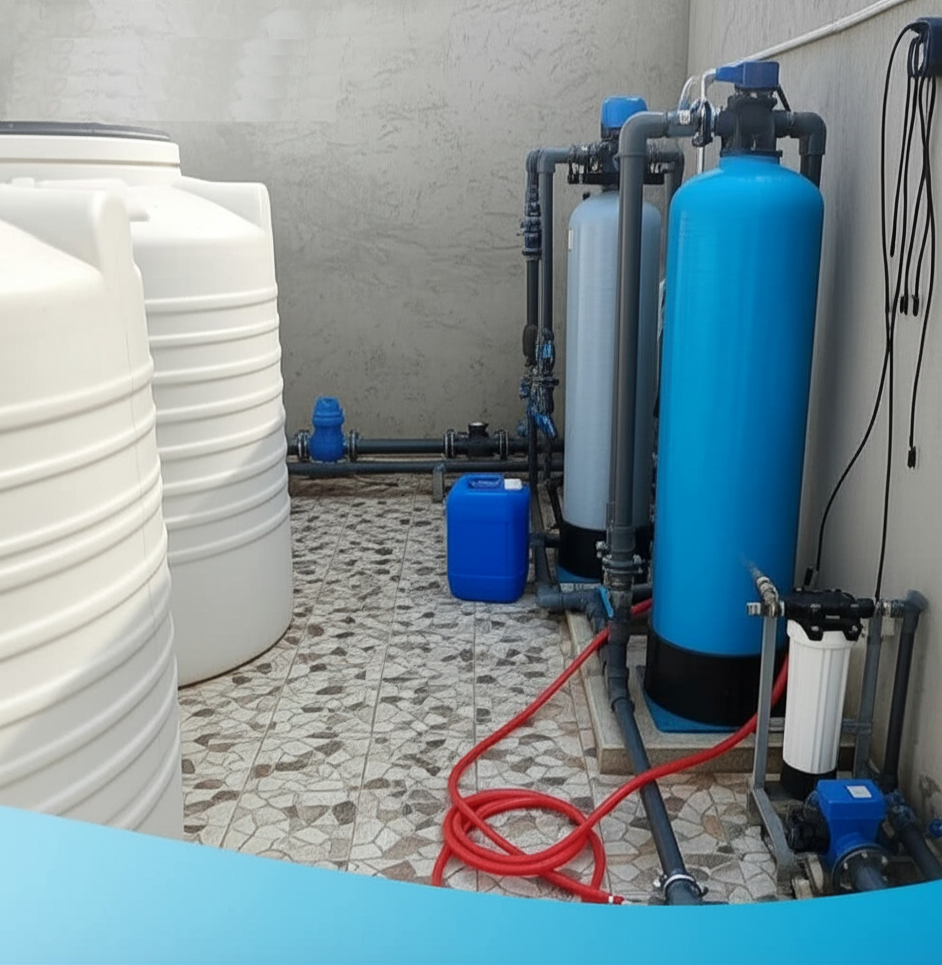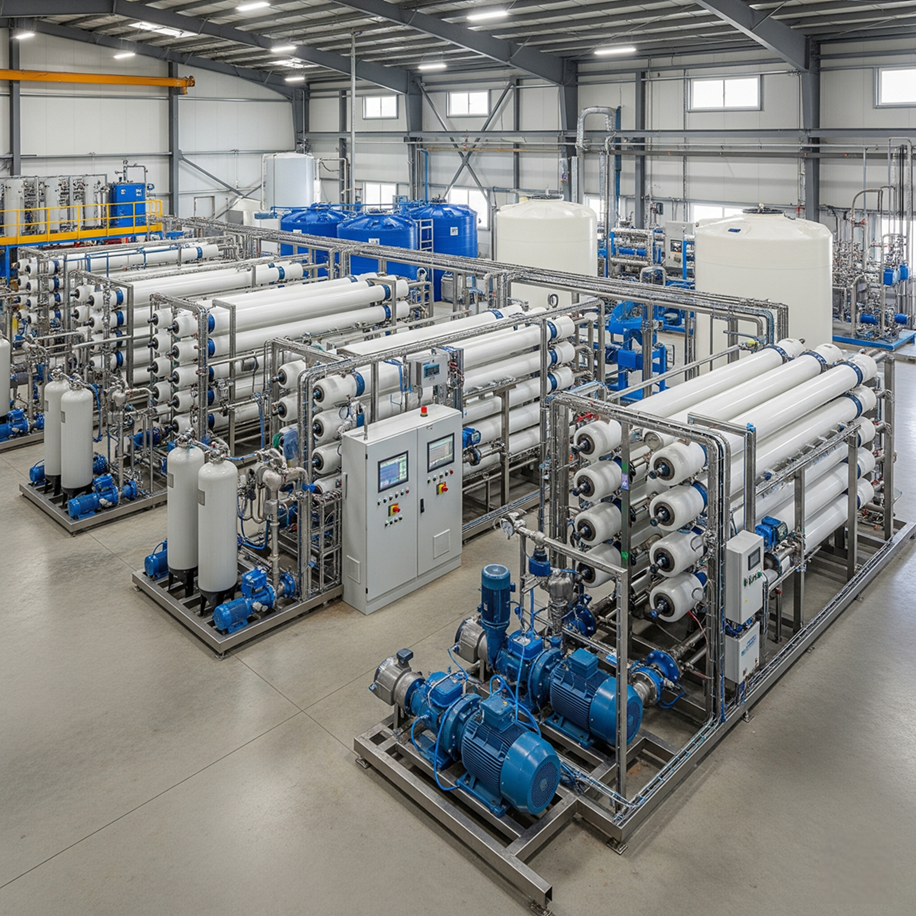
How Automatic Control Valves Work in Water Softeners
Automatic control valves in water softeners are essential components in water softener systems. They are designed to regulate the purification process without manual intervention. These valves can be controlled using gravity or electricity, allowing for smooth operation and automatically managing the regeneration of resin beads that capture hardness minerals such as calcium and magnesium from the water.
The Function of Control Valves
The primary function of automatic control valves in water softeners is to monitor water hardness levels and activate the regeneration cycle when necessary. This cycle typically involves backwashing the resin beads, followed by a brine rinse to remove accumulated hardness minerals and replace them with sodium ions. The entire process is controlled by the valve based on pre-set water hardness thresholds, usage patterns, and system settings.
Read More: What Is an Automatic Control Valve in a Water Softener?
The Regeneration Process
The regeneration process typically consists of several steps:
- Backwash: The system flushes any dirt or debris from the resin tank.
- Brine Flushing: A brine solution floods the resin tank, removing hard minerals.
- Rinsing: Fresh water rinses the resin beads to prepare them for the next cycle.
The entire regeneration cycle can take from 30 to 90 minutes, depending on the specific system and its settings.
Efficiency and Maintenance
The efficiency of automatic control valves directly impacts both operating costs and environmental sustainability. Valves designed for optimal regeneration processes reduce water and salt waste, enhancing overall efficiency.
Routine maintenance is essential to ensure proper valve operation, as problems such as sticking or leaks can disrupt the softening process. A regular maintenance schedule, along with periodic inspections, can extend the life of valves and ensure their reliability.
Technological Advances to Maintain Control Valve Efficiency
Recent advances have led to the development of smart control valves that utilize sensors and real-time data analytics. These innovations enable better monitoring and optimization of water treatment processes, resulting in more efficient regeneration timing and system performance.
Benefits of Automatic Water Softener Control Valves
Automatic water softener control valves offer numerous benefits that enhance the efficiency and effectiveness of water softener systems. These benefits include operational efficiency, reduced resource consumption, and improved water quality management.
Operational Efficiency
Automatic control valves are designed to streamline the water softener process by regulating water flow and managing regeneration cycles with minimal human intervention. This automation allows the water softener process to run smoothly in the background, reducing the need for manual adjustments and supervision.
Using timer- or microprocessor-based controls, these valves can optimize the regeneration process based on actual water usage, resulting in more accurate water softeners and reduced resource consumption.
Reduced Resource Consumption
One of the most significant benefits of automatic water softener control valves is their ability to significantly reduce chemical and water usage. Because these valves can precisely manage flow rates and timing of regeneration cycles, they reduce the amount of salt and water required for the softening process.
For example, modern, highly efficient systems can significantly reduce salt usage, resulting in lower operating costs and a reduced environmental impact, as demonstrated by recent studies that have shown significant reductions in chloride production after upgrading to efficient systems.
Consistent Water Quality
Automatic control valves help maintain consistent water quality, which is essential for both residential and industrial applications. By ensuring that regeneration cycles operate at the appropriate times based on water hardness levels, these valves prevent fluctuations in water quality that can lead to problems such as limescale buildup or equipment damage. This consistency is particularly important in environments where water quality directly impacts manufacturing processes or the performance of heating, ventilation, and air conditioning (HVAC) systems.
Less Maintenance Requirements
Compared to manual systems, automatic water softener control valves require less frequent maintenance due to their efficient operation and reduced human intervention. This reduced maintenance requirement results in lower operating costs over time, as there is less need for repairs and adjustments. Additionally, automatic systems are often more reliable, enhancing their appeal to users seeking a reliable water softening solution.
Installation and Maintenance
Installing an automatic water softener control valve is a critical step in ensuring the efficient performance of the entire system. It is generally recommended that a licensed plumber perform the installation to comply with local plumbing codes and to maintain the warranty. The installation process includes determining the appropriate location for the softener, filling the media/mineral tank, connecting the control valve, and installing the necessary plumbing fixtures.
For systems connected to well water, the installation steps are almost identical to those for municipal water supplies. Once installed, routine maintenance is much easier, especially with salt-free systems, which require less ongoing maintenance compared to traditional salt-based systems.
Maintenance Requirements
Routine maintenance of an automatic water softener is essential to ensure optimal performance and longevity. Key maintenance tasks include regularly checking salt levels and cleaning the brine tank annually to prevent problems such as salt bridges, which can impede the regeneration process.
- Salt-based systems: Regular salt additions and cleanings are necessary. Users should monitor salt buildup and remove any salt bridges that may form.
- Salt-free systems: These systems require minimal maintenance, primarily involving filter replacement and periodic inspections. Periodic inspections should be performed every few months to check for signs of wear or visible leaks. As well as listening for any unusual sounds that may indicate a malfunction. Professional maintenance services, such as those offered by companies like Benjamin Franklin Plumbing, can provide comprehensive inspections and service, ensuring the unit is operating efficiently and that any potential problems are addressed early.
Health Effects
The health effects of hard and soft water have been extensively researched, revealing the potential benefits and risks associated with each type.
Hard Water
Hard water is characterized by high levels of minerals, most notably calcium and magnesium. While some studies suggest that drinking hard water may contribute to cardiovascular health by providing essential minerals. There are concerns about its effects on skin conditions. For example, hard water may exacerbate conditions like eczema due to its mineral content. That can lead to skin irritation and dryness.
Additionally, hard water is sometimes linked to the formation of kidney stones. Especially in people predisposed to such conditions.
On the positive side, hard water can help maintain bone density and dental health thanks to its mineral content. These minerals are essential for maintaining strong bones and teeth, which may reduce the risk of osteoporosis and tooth decay.
Furthermore, consumption of hard water has been associated with lower mortality rates from cardiovascular disease, highlighting its preventive role.
Freshwater
Freshwater, typically treated with ion exchange systems, has a lower mineral content and is often considered better for skin and hair health. Users often report benefits such as reduced soap scum buildup, softer laundry, and improved overall cleaning product effectiveness.
However, soft water may cause some health issues, primarily due to the sodium added during the softening process. High sodium levels in drinking water can pose a problem for people with high blood pressure or other cardiovascular problems, leading to increased blood pressure.
Furthermore, research on the health effects of soft water is still limited. Initial studies have explored potential links between soft water consumption and various health problems. Including colon cancer and metabolic syndrome. But these findings require further research to determine causality.
Environmental and Long-Term Considerations
Homeowners should also evaluate the environmental impacts of water softening systems. That may contribute to chloride contamination of water sources, impacting aquatic ecosystems and potentially leading to broader environmental concerns.
Therefore, exploring environmentally friendly alternatives to traditional salt-based water softeners may be beneficial to both personal health and the environment. Ultimately, the decision to use soft or hard water depends on individual health needs and preferences. As the options offer unique advantages and challenges.


























